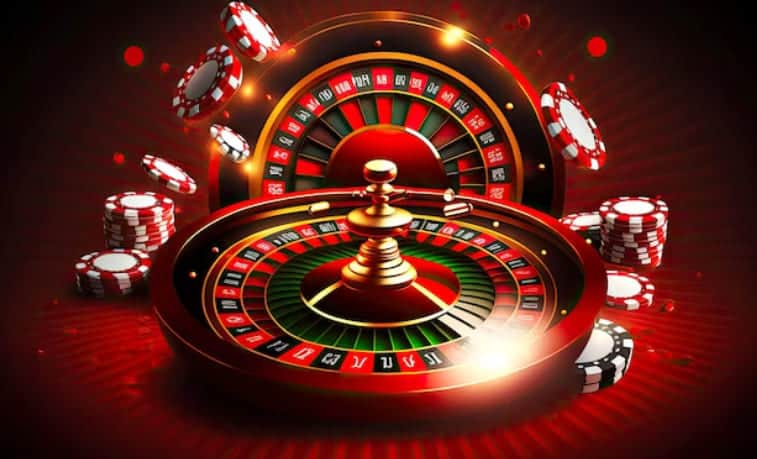In the dynamic world of gambling, the allure of the casino goes beyond the spinning reels and shuffled cards—it delves into the intricate realm of human psychology. Understanding the behavior of UK players provides valuable insights into the motivations, emotions, and cognitive processes that drive the thrill of the game. Join us on a journey as we explore the psychology of gambling, unraveling the complex tapestry that shapes the decisions and experiences of players in the UK.
1. The Thrill-Seeking Tendency: Chasing Excitement
The Dopamine Rush:
The anticipation and unpredictability of gambling activities trigger the release of dopamine, a neurotransmitter associated with pleasure and reward. The thrill of a potential win or the excitement of a close call contributes to the addictive allure of the gaming experience.
Risk and Reward Dynamics:
Gambling inherently involves risk, and for many UK players, the potential for substantial rewards heightens the appeal. The balance between risk and reward fuels the thrill-seeking tendencies that draw individuals to various forms of gambling.
Impact on Decision-Making:
The pursuit of excitement can influence decision-making processes, leading players to take risks they might not consider in other contexts. This dynamic aspect of gambling behavior adds an element of unpredictability to the gaming experience.
2. Cognitive Biases and Perceptions: Navigating the Gambler’s Mind
Illusion of Control:
Some players harbor the illusion of control, believing that their actions or decisions can influence the outcome of games of chance. This cognitive bias can lead to increased confidence in decision-making, even in situations where chance plays a significant role.
Gambler’s Fallacy:
The gambler’s fallacy, a common cognitive bias, involves the belief that past outcomes influence future events in random processes. For example, if a series of losses occurs, the gambler may erroneously expect a win to balance the perceived imbalance.
Influence on Betting Patterns:
Cognitive biases can shape betting patterns and strategies. For instance, a player may increase their bets after a series of losses, driven by the belief that a win is imminent due to the gambler’s fallacy.
3. Escapism and Coping Mechanisms: Seeking Relief in Gambling
Stress Relief and Entertainment:
For some UK players, gambling serves as a form of escapism, offering a temporary respite from life’s stresses. The immersive nature of casino games provides an engaging and entertaining diversion from daily challenges.
Coping with Emotional States:
Gambling can be a coping mechanism for managing emotional states, including anxiety, boredom, or loneliness. The excitement and engagement provided by casino activities offer a means of distraction and emotional regulation.
Potential Risks:
While gambling can provide temporary relief, reliance on it as a coping mechanism may lead to negative consequences if not accompanied by healthy coping strategies and emotional support.
4. Social Interaction and Community: The Power of Connection
Community Engagement:
For many UK players, the social aspect of gambling is a significant draw. Whether in land-based casinos or online gaming communities, the shared experience of wins and losses fosters a sense of camaraderie and connection.
Online Chat and Live Games:
The advent of online casinos with live dealer games and interactive chat features amplifies the social dimension of gambling. Players can engage with each other and the dealer, creating a virtual community.
Potential for Addiction:
While social interaction enhances the overall gaming experience, it’s essential to recognize the potential risks of social gambling, as excessive engagement may contribute to addictive behaviors.
5. The Influence of Marketing and Advertising: Shaping Perceptions
Enticing Promotions and Bonuses:
Marketing strategies employed by online casinos often center around enticing promotions and bonuses. These offers can influence player behavior, encouraging increased participation and engagement.
Perception of Winning Odds:
The portrayal of winning scenarios in advertisements can impact players’ perceptions of their likelihood of success. Clear and transparent communication about odds can contribute to responsible gambling practices.
Responsible Marketing Practices:
Acknowledging the influence of marketing on player behavior, responsible online casinos strive to implement ethical marketing practices, prioritizing transparency and responsible gaming messaging.
6. Responsible Gambling Measures: Fostering Healthy Habits
Self-Exclusion and Limits:
Responsible gambling tools, such as self-exclusion options and deposit limits, empower players to set boundaries on their gaming activities. These measures contribute to maintaining control over gambling behaviors.
Education and Awareness:
Online casinos play a pivotal role in educating players about responsible gambling practices, promoting awareness of potential risks, and providing resources for seeking help if needed.
Collaboration with Support Organizations:
Establishing partnerships with support organizations, such as GamCare, reinforces the commitment to player welfare. Casinos can provide resources and assistance for those facing challenges related to gambling.
7. The Role of Skill vs. Chance: Impact on Player Confidence
Games of Skill vs. Games of Chance:
The perceived level of skill required in a game influences player confidence. Games of skill, such as poker or blackjack, may attract players who believe they can influence outcomes through strategic decisions.
Balancing Skill and Chance:
Understanding the balance between skill and chance in different games is crucial. While skill can enhance performance in certain games, chance remains a significant factor that adds an element of unpredictability.
Impact on Decision-Making:
The perception of skill may influence decision-making processes, with players more likely to engage in games where they feel their abilities can contribute to success.
Final Thoughts: Navigating the Complex Landscape
As we delve into the psychology of gambling among UK players, it becomes clear that the allure of the casino extends far beyond the mechanical aspects of the games. The interplay of thrill-seeking tendencies, cognitive biases, social dynamics, and coping mechanisms creates a complex tapestry that shapes player behavior. Navigating this landscape requires a blend of self-awareness, responsible gambling practices, and an understanding of the psychological factors at play. Whether you’re drawn to the excitement of chance or the strategic allure of skill-based games, the key lies in approaching gambling with mindfulness and a commitment to a healthy gaming experience. As the reels spin and the cards are dealt, may your journey through the psychology of gambling be both thrilling and rewarding!
















